In her 1969 book On Death and Dying, psychiatrist Elisabeth Kübler-Ross introduced the Kübler-Ross model of grief, which outlines five stages of emotions that people go through while processing grief. The five stages are denial, anger, bargaining, depression, and acceptance. More recent research has suggested that there are actually seven stages of grief; shock, denial, anger, bargaining, depression, testing, and acceptance. Not everyone goes through all of the stages. Not everyone goes through all of the stages in order. Some people get through the stages of grief quickly, while others take years. There are many different types of grief, including (but not limited to) anticipatory grief, abbreviated grief, delayed grief, chronic grief, normal grief, complicated grief, inhibited grief, cumulative grief, and collective grief. It turns out that grief isn’t just one of the hardest things that people can go through, but it can be quite complicated too.
Post Contents:
Shock and Denial
Depending on what grief model you’re using, the first stages of grief are shock and/or denial. According to BetterHealth,
…shock, and denial, is typically when emotions are most profound. The fact that you have experienced a loss may be evident, but you may still have underlying feelings of shock, disbelief, or panic as you try to deal with the situation.
During this stage, many people experience physical symptoms such as nausea or vomiting, difficulty sleeping, decreased appetite, or heart palpitations. As these physical symptoms lessen over time, feeling emotionally “numb” is also common. Some people may describe this stage as feeling as if they are watching someone else’s life on a movie screen or as if they are detached from the reality of what has happened, seeing things differently than before.
My Experience with Shock/Denial When Dealing With The Loss of My Dog
I lost my love, Kitsune, in January of this year. We shared 15+ amazing years together before he died. He was very much an important part of my life. I think about and miss him daily, and suspect that won’t change anytime soon. Did I experience the shock and/or denial stages of grief related to Kit’s death?
To be honest, before Kit passed I had already been dealing with a lot of anticipatory grief. Although I didn’t know he had cancer until it was too late, he was a senior dog. Back in 2022 he was diagnosed with IVDD. He had arthritis, chronic pancreatitis, and a heart murmur. He was happy, always so happy, but he was old. He lost his night vision. After his IVDD diagnosis, he couldn’t go up and down the stairs on his own anymore, and we had to help him get on and off the furniture. I don’t think I fully realized, until after he was gone, just how high-maintenance he had become within the last couple of years. Not that I minded any of it for a second. I’d deal with all the maintenance 1,000 times over just for a chance to feel Kit snuggled up next to me again.
What Is Anticipatory Grief And What Does It Have To Do With Dogs?
I do think I was in some denial about how grave Kitsune’s condition was during his last couple of days. He was in and out of the emergency vet while we worked towards getting a diagnosis of what was going on. I knew, deep down, where things were headed but I just kept trying to tell myself that everything was going to be okay. That we’d find something minor and easy to fix and Kit would get better again.
 I remember the night before Kit’s last vet visit, I sat up with him all night intermittently having panic attacks. Yeah, that was fun (/sarcasm). It was me having the panic attacks, in case that wasn’t clear. Thankfully Kit was resting comfortably! I’ve always dealt with anxiety related issues, but it’d been awhile since I had panic attacks that bad. I think that night, when it was just me and Kit on our last night together, the reality of everything really hit me.
I remember the night before Kit’s last vet visit, I sat up with him all night intermittently having panic attacks. Yeah, that was fun (/sarcasm). It was me having the panic attacks, in case that wasn’t clear. Thankfully Kit was resting comfortably! I’ve always dealt with anxiety related issues, but it’d been awhile since I had panic attacks that bad. I think that night, when it was just me and Kit on our last night together, the reality of everything really hit me.
It’s weird when you’re dealing with an impending death, starting to go through the process of grieving while your loved one is still with you. I’m no expert, but I think I went through the first stages of grief over Kit during those last couple of days with Kit.
Remember that Grief Over a Pet is Normal
Not everyone understands how important pets can be in the lives of the people who love them. It can be especially hard to deal with intense grief over a beloved pet if people around you trivialize your experience. Not everyone feels the same way about pets, and that’s ok. But it’s important to remember that it is normal to intensely grieve for our furry family members. In a 2019 article for PsychCentral, John M. Grohol, Psy.D., wrote that…
Pets — or what researchers call companion animals — are most often seen today as a fellow member of the family. It is not surprising then to learn that most people grieve a pet’s passing as much, and sometimes even more, than the passing of a human friend or family member.
I know that my Kitsune was, still is, very much a beloved member of my family – my paw pack. Call me crazy, but I spend more time with my dogs than with anyone else in my life, my fiancé (who I live with) included! They are my best buddies, my little sidekicks (or am I their sidekick?), almost always by my side. I think that losing them will always be one of the hardest things I’ll have to go through. It’s really, really hard. But, as an Instagram friend recently reminded me, it wouldn’t be so hard if dogs weren’t so awesome. It’s hard because they are so special, and hold such big places in our hearts.
Ways To Help Cope With The Denial/Shock Stages of Grief
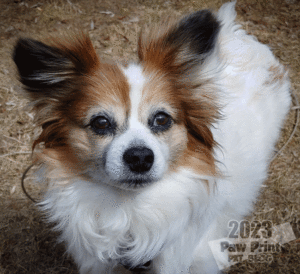 Unfortunately there’s no magic pill or exercise that will eliminate grief. In most cases, it just takes time. We never forget our lost loved ones, but in time we do adjust to a new normal. The shock of losing a beloved family member eventually, in time, becomes less raw, and we’re hopefully eventually better able to focus on happy memories instead of the shock and sadness of losing them.
Unfortunately there’s no magic pill or exercise that will eliminate grief. In most cases, it just takes time. We never forget our lost loved ones, but in time we do adjust to a new normal. The shock of losing a beloved family member eventually, in time, becomes less raw, and we’re hopefully eventually better able to focus on happy memories instead of the shock and sadness of losing them.
It’s okay to allow yourself to feel however you feel. Cry if you need to. If you’re feeling numb and disconnected that’s ok, and normal, too. Don’t feel ashamed if you feel like you need to reach out for help. Talk to understanding friends, family members, or find a support group if you feel like talking about your loss will help you. Consider talking with a mental health professional or grief counselor if you feel like you need too.
Don’t forget to take care of yourself. Self care is important and can help us to better deal with stressful situations. Eat well, exercise, and try to get enough sleep. Try to engage in hobbies or other things you enjoy doing. None of these things will cure grief, unfortunately, but they can help make your days a bit brighter in the meantime.
Another Quick Update
Look at me actually sticking to somewhat of a posting schedule! As you can probably tell from this post, months later I’m still very much missing my Kitsune. It makes it hard for me to muster up the motivation to post here. I’ve been writing about loss for my last couple of posts, which I think is an important topic. Throughout my years of blogging here I’ve written about what I know, and right now, when it comes to dogs, I know grief.
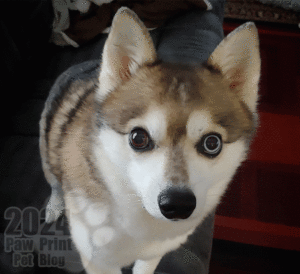 For now, I think I’m going to take at least somewhat of a break from writing about it. I wanted to share that so no one thinks it’s super weird if I go from posting grief related content to suddenly switching gears. It’s not, by any means, because I’m done mourning Kitsune. I’m just not going to have any motivation to continue this blog if every time I try to work on it I get upset.
For now, I think I’m going to take at least somewhat of a break from writing about it. I wanted to share that so no one thinks it’s super weird if I go from posting grief related content to suddenly switching gears. It’s not, by any means, because I’m done mourning Kitsune. I’m just not going to have any motivation to continue this blog if every time I try to work on it I get upset.
Fenrir is doing well. He’s, finally, started eating a bit better again. I’ve been spending as much time as possible exploring outside with him, which he loves. Now that the weather has finally been cooperating, we’ve been hiking a ton and even mountain climbing! I’ll try to keep sticking to our current every other week posting schedule now. You can get more recent updates by following us on social media, especially Facebook and Instagram. Oh, and our Youtube channel, which I haven’t been posting on a ton lately but I am planning on updating soon!

We’ve, unfortunately, been dealing with content scrapers stealing our articles. You shouldn’t be seeing this article on any site other than pawprintpetblog.com! If you’re reading this article on any other site, we’d love for you to take the time to contact us and let us know and, if you have the time, stop by and visit us on our official site! Thanks you.

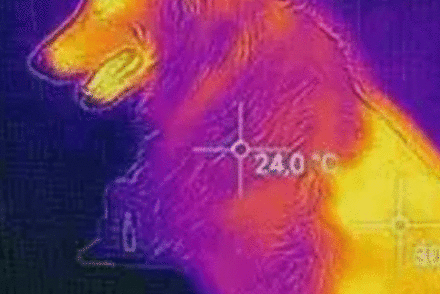
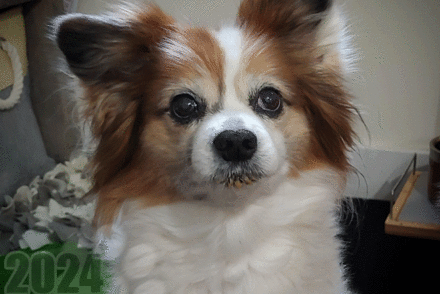
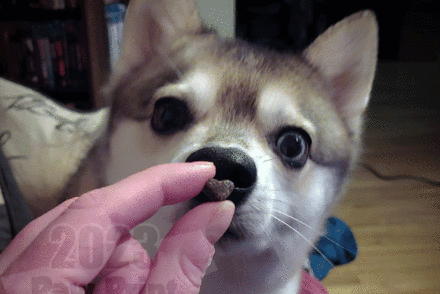

No Comments